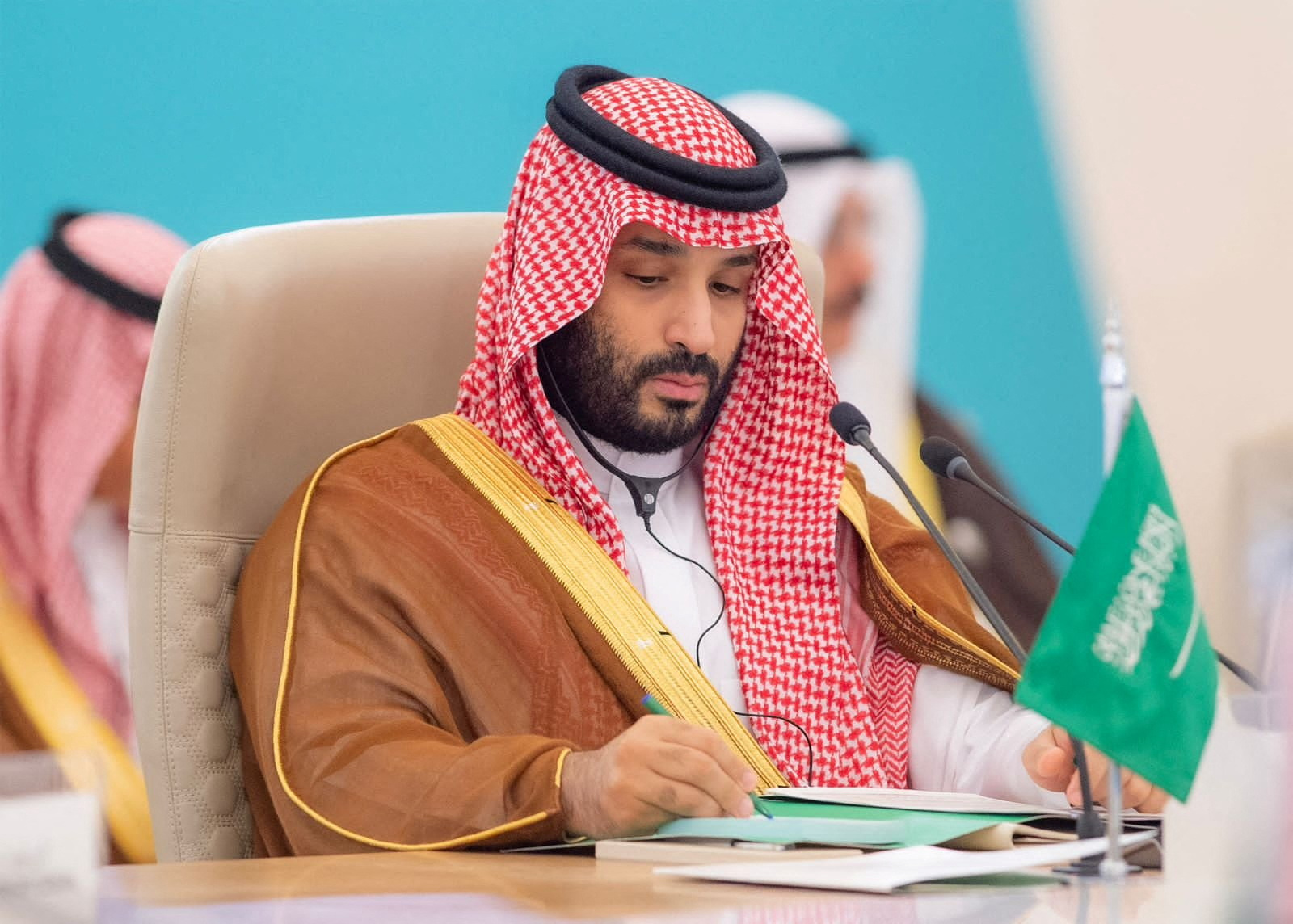Saudi Crown Prince Foresees Israel Normalization, Deal Framework Expected By 2024
In a remarkable turn of events signaling a possible shift in the Middle East's geopolitical landscape, Saudi Crown Prince foresees Israel normalization as Israel and Saudi Arabia inch closer to a groundbreaking deal, backed by the United States. The Israeli foreign minister hinted on Thursday that a U.S.-brokered framework could potentially be cemented by early 2024.
Author:Raven NoirReviewer:Morgan MaverickSep 22, 202324.5K Shares350.7K Views

In a remarkable turn of events signaling a possible shift in the Middle East's geopolitical landscape, Saudi Crown Prince foresees Israel normalizationas Israel and Saudi Arabia inch closer to a groundbreaking deal, backed by the United States. The Israeli foreign minister hinted on Thursday that a U.S.-brokered framework could potentially be cemented by early 2024.
Israel And Saudi Arabia Approach Historic Deal; U.S. Brokering Continues
This development could usher in significant foreign-policy triumphs for U.S. President Joe Biden, particularly as he gears up for reelection campaigns in 2024. During conversations with Israeli Prime Minister Benjamin Netanyahu at the U.N. general assembly, Biden expressed optimism about the deal's prospects. In a distinct but aligned note, Saudi Crown Prince Mohammed bin Salman stated, "every day we get closer" to the agreement.
However, a myriad of interrelated issues persists. Riyadh's pursuit of a civilian nuclear program poses challenges for both the U.S. and Israel. Moreover, calls from Saudi Arabia and the U.S. advocating for Palestinian advances are a tough sell for Netanyahu's predominantly hard-right government. Addressing these challenges, Foreign Minister Eli Cohen commented, "The gaps can be bridged. It will take time. But there is progress."
He further added, "I think there is certainly a likelihood that, in the first quarter of 2024, four or five months hence, we will be able to be in at a point where the details (of a deal) are finalized." This timeline seems strategically designed to allow the Biden administration sufficient time for a review by the U.S. Congress and Senate, ensuring ratification ahead of the 2024 presidential election.
Saudi Arabia's discussions with the U.S. encompass a grand bargain: normalizing relations with Israel in exchange for a U.S. defense pact and assistance in launching its civilian nuclear program. In the backdrop of this potential historic move, the establishment of a Palestinian state remains a pivotal concern.
"For us, the Palestinian issue is very important. We need to solve that part," remarked the Saudi leader, colloquially known as MbS, during a rare English interview on “Special Report with Bret Baier." He highlighted that there had been “good negotiations” and rejected claims of suspended talks by affirming, “every day, we get closer.”
Broader Implications And Continuing Challenges
Biden's recent meeting with Netanyahu during the U.N. General Assembly revolved chiefly around the potential peace agreement between Israel and Saudi Arabia. Netanyahu’s office stated that the accord could be a catalyst to end the Arab-Israeli conflict and potentially establish an economic conduit linking Asia, the Middle East, and Europe.
Asked about collaborating with the staunchly conservative Netanyahu, Prince Mohammed articulated, "If we have a breakthrough, reaching a deal that gives the Palestinians their needs and (making) the region calm, we’ve got to work with whoever’s there.”
National Security Council spokesman, John Kirby, emphasized the significance of normalization for the region. He said, "Obviously, we encourage normalization. We think it’s good not just for Israel and Saudi Arabia, we think it’s good for the whole region.”
The conversations between the U.S., Israel, and Saudi Arabia also encompass the potential of Iran acquiring nuclear weapons. On this front, Prince Mohammed expressed concerns and suggested that Saudi Arabia would feel compelled to obtain one should Iran do so.
However, Prince Mohammed's international media engagements have been limited, especially since the 2018 murder of Jamal Khashoggi. Addressing the issue, he said about Khashoggi's killing, "It was a mistake. It was painful," and confirmed that "everyone involved" faced incarceration.
In recent years, Saudi Arabia has significantly shifted its globalimage, with a focus on major diplomatic endeavors and the prince’s Vision 2030, which seeks to diversify the economy.
Concluding the interview, Prince Mohammed described the present Saudi-U.S. dynamic as “really amazing” and candidly addressed criticisms of "sportswashing" by emphasizing the economic benefits of investing in sports for Saudi Arabia's GDP growth.

Raven Noir
Author
Raven Noir is a captivating and enigmatic news reporter who unravels mysteries with a relentless pursuit of truth. Possessing an insatiable curiosity and an astute mind, Raven delves into the depths of complex stories, unearthing secrets that lie beneath the surface. With a masterful grasp of deduction and observation, Raven stands as a beacon of fearless investigation.
In the realm of journalism, Raven is known for his enigmatic presence, drawing people in with an aura of intrigue. Driven by an unwavering passion for unveiling the truth, Raven Noir continues to shed light on the darkest corners of society. Through captivating storytelling and unwavering determination, he challenges conventions and uncovers enigmatic secrets that lie just beyond the surface.

Morgan Maverick
Reviewer
Morgan Maverick is an unorthodox news reporter driven by an insatiable hunger for the truth. Fearless and unconventional, he uncovers hidden narratives that lie beneath the surface, transforming each news piece into a masterpiece of gritty authenticity. With a dedication that goes beyond the boundaries of conventional journalism, Morgan fearlessly explores the fringes of society, giving voice to the marginalized and shedding light on the darkest corners.
His raw and unfiltered reporting style challenges established norms, capturing the essence of humanity in its rawest form. Morgan Maverick stands as a beacon of truth, fearlessly pushing boundaries and inspiring others to question, dig deeper, and recognize the transformative power of journalism.
Latest Articles
Popular Articles
